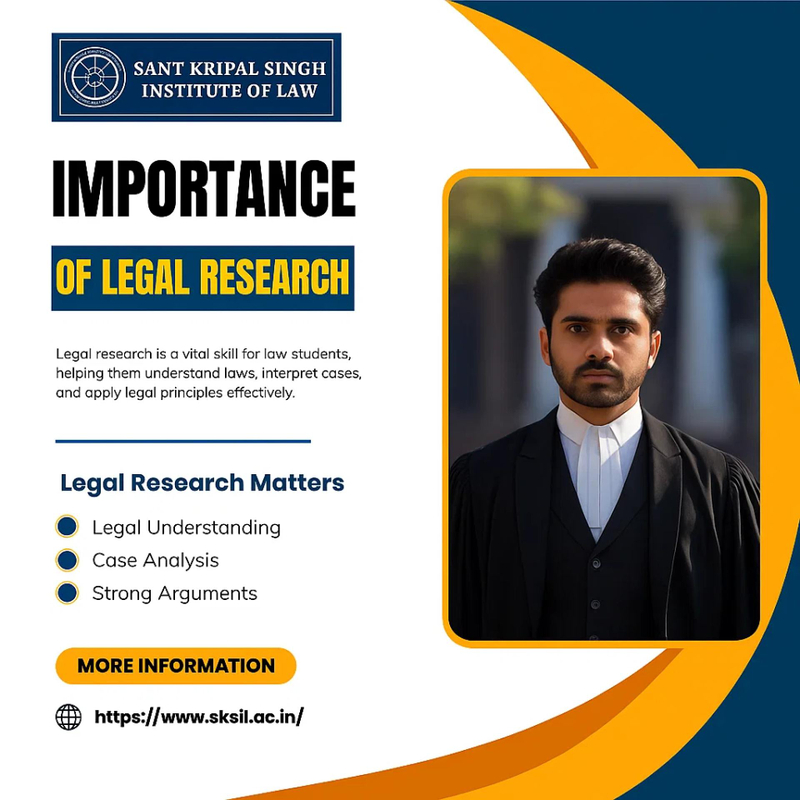Legal Research Skills That Boost LLB Careers
The legal profession is undergoing a revolutionary transformation, where information mastery has become the ultimate currency of success. For aspiring legal professionals, the ability to conduct thorough, precise legal research now determines the difference between thriving careers and mediocre outcomes. Every LLB career opportunity—from elite law firm partnerships to prestigious judicial appointments—hinges on exceptional research capabilities that separate outstanding lawyers from ordinary practitioners. Modern legal education recognizes this paradigm shift, emphasizing research skills as the foundation for professional excellence. Today's law students must develop sophisticated analytical abilities to navigate complex legal databases, synthesize conflicting authorities, and deliver compelling arguments that influence critical decisions.
Understanding Legal Research in Modern Legal Education
Legal research encompasses the systematic investigation of legal authorities, precedents, statutes, and case law to support legal arguments and decision-making. This multifaceted discipline requires students to develop critical thinking skills while learning to navigate both traditional and digital legal databases effectively.
Modern legal education has evolved to recognize legal research as a cornerstone skill that bridges academic learning with practical application. Students who excel in legal research demonstrate superior analytical capabilities, attention to detail, and the ability to synthesize complex information—qualities highly valued by law firms, corporate legal departments, and judicial institutions.
Key Benefits of Legal Research for Law Students
1. Academic Excellence and Improved Performance
Legal research skills directly correlate with academic success in law school. Students proficient in research techniques consistently produce higher-quality assignments, participate more effectively in classroom discussions, and demonstrate deeper understanding of legal concepts. This academic advantage translates into better grades, which significantly impact future LLB career opportunity prospects.
2. Enhanced Critical Thinking Abilities
The process of legal research develops sophisticated analytical skills that extend beyond legal contexts. Students learn to evaluate sources, identify relevant information, distinguish between primary and secondary authorities, and construct logical arguments based on evidence. These transferable skills prove invaluable across various professional settings.
3. Professional Preparation and Market Readiness
Employers increasingly prioritize candidates with strong research capabilities. Law firms, government agencies, and corporate legal departments require lawyers who can efficiently locate relevant legal authorities, analyze complex legal issues, and provide well-researched recommendations. Students with advanced research skills enter the job market with a competitive advantage.
Impact on Career Opportunities
Law Firm Recruitment
Leading law firms consistently rank research skills among their top hiring criteria. Associates who demonstrate proficiency in legal research are more likely to receive challenging assignments, advance quickly within firm hierarchies, and develop specialization in complex practice areas. This professional growth directly impacts earning potential and career satisfaction.
Judicial Clerkship Opportunities
Judicial clerkships represent prestigious LLB career opportunity paths that require exceptional research abilities. Judges rely on clerks to conduct thorough legal research, draft opinions, and provide analytical support. Students with strong research backgrounds significantly improve their chances of securing these competitive positions.
Government and Public Service Roles
Government legal positions often involve extensive research requirements, from policy analysis to regulatory compliance. Legal professionals working in public service must navigate complex statutory frameworks and administrative procedures, making research skills essential for effective performance.
Essential Legal Research Skills for Modern Students
1. Database Navigation and Technology Proficiency
Contemporary legal research requires familiarity with multiple digital platforms, including Westlaw, LexisNexis, and specialized databases. Students must develop technical competencies alongside traditional research methodologies to remain competitive in the evolving legal market.
2. Primary Source Analysis
Understanding the hierarchy of legal authorities enables students to construct persuasive arguments and provide reliable legal advice. This fundamental skill involves distinguishing between mandatory and persuasive authorities while properly citing legal sources according to established conventions.
3. Interdisciplinary Research Capabilities
Modern legal issues often require understanding of non-legal disciplines, from economics to technology. Students who develop interdisciplinary research skills can address complex legal challenges that intersect with other fields, opening additional LLB career opportunity pathways.
Building Research Skills Throughout Law School
First-Year Foundation Building
Beginning law students should focus on mastering basic research techniques, understanding legal citation formats, and developing familiarity with primary legal sources. This foundational period establishes habits and competencies that support advanced learning throughout law school.
Advanced Skill Development
Upper-level students benefit from specialized research training in their areas of interest. Whether focusing on corporate law, criminal justice, or intellectual property, developing expertise in specific legal domains enhances career prospects and professional marketability.
Practical Application Opportunities
Participating in moot court competitions, law review activities, and clinical programs provides valuable opportunities to apply research skills in realistic settings. These experiences demonstrate competency to potential employers while building professional networks within the legal community.
Career Advancement Through Research Excellence
Legal professionals who maintain and develop their research skills throughout their careers often achieve greater success than those who neglect this fundamental competency. Senior attorneys who can efficiently conduct comprehensive research provide greater value to clients and employers, leading to increased responsibilities and advancement opportunities.
The legal profession continues evolving with technological advancements and changing client expectations. Professionals who adapt their research methodologies to incorporate new tools and techniques position themselves for sustained career growth and expanded LLB career opportunity horizons.
Future Trends and Considerations
Technology Integration
Artificial intelligence and machine learning technologies are transforming legal research practices. Students who embrace these technological advances while maintaining strong foundational research skills will be best positioned for future success.
Globalization of Legal Practice
International legal issues require sophisticated research capabilities across multiple jurisdictions and legal systems. Students developing global research competencies expand their career options significantly.
Conclusion
Legal research represents far more than an academic requirement—it's a career-defining skill that influences every aspect of legal practice. For law students seeking to maximize their LLB career opportunity potential, developing superior research capabilities provides a sustainable competitive advantage throughout their professional lives.
The investment in research skill development pays dividends through improved academic performance, enhanced employment prospects, and accelerated career advancement. As the legal profession continues evolving, students who prioritize research excellence position themselves for sustained success in an increasingly competitive market.



